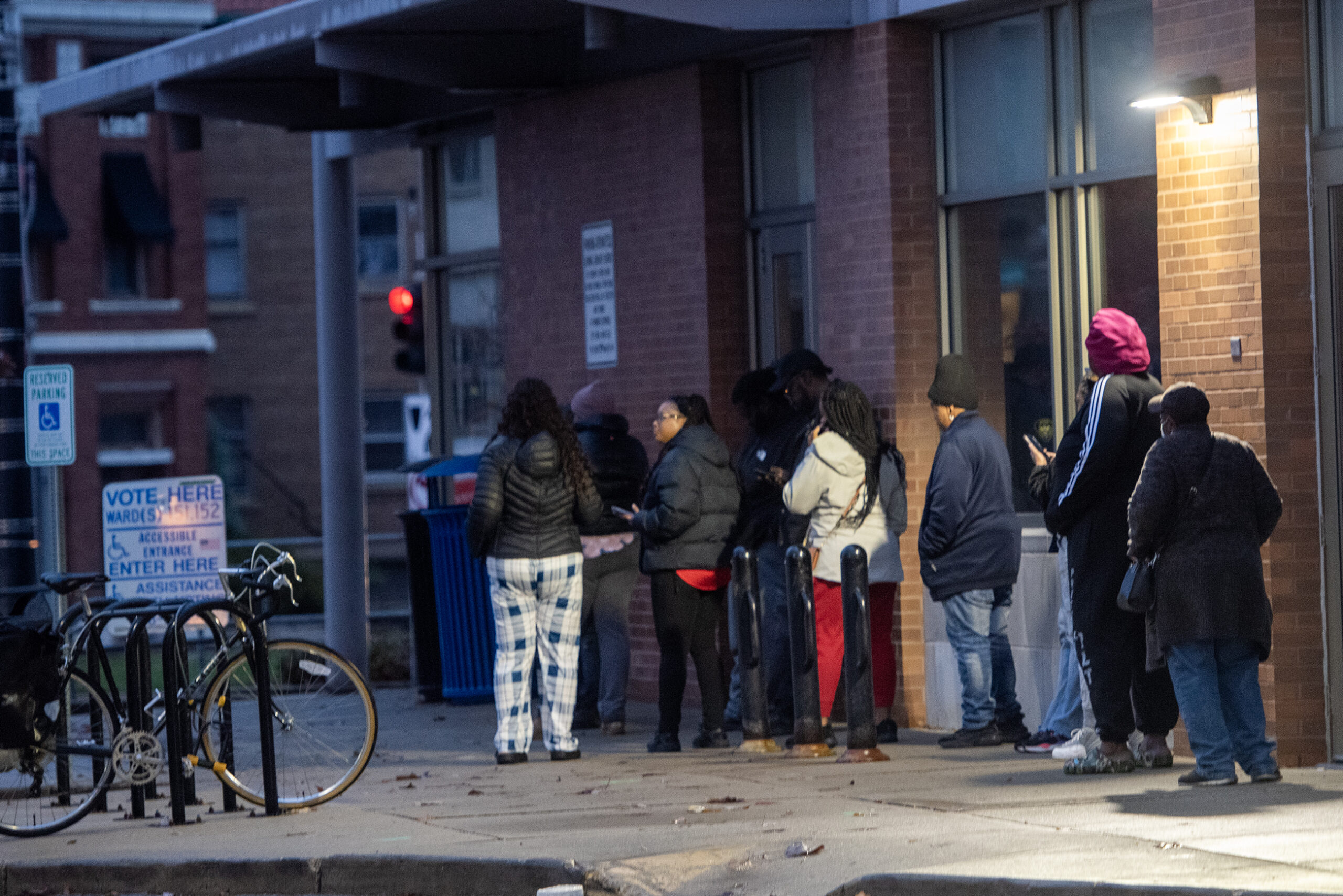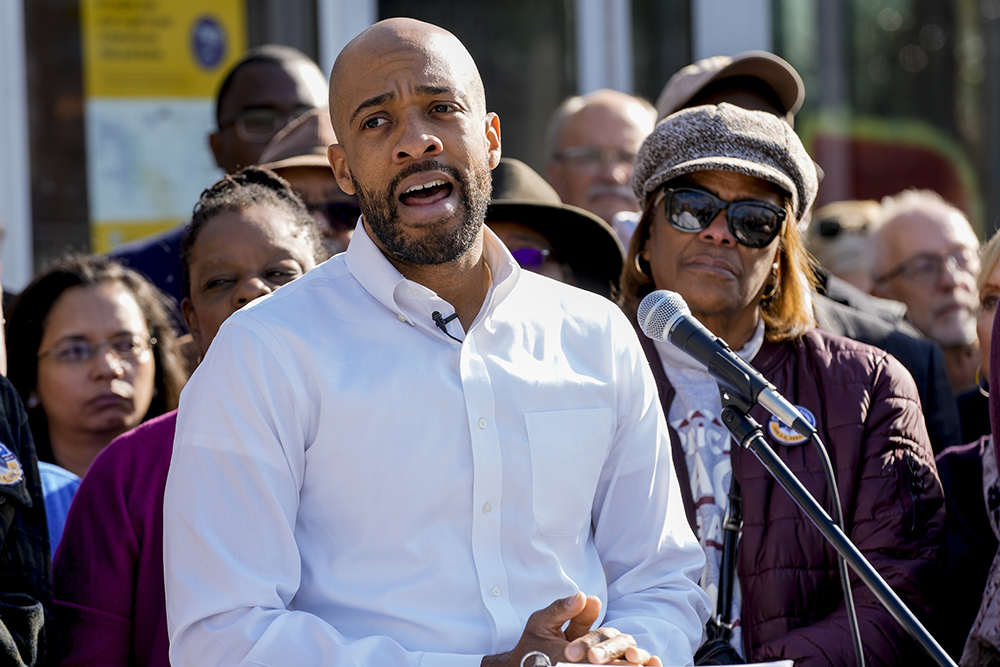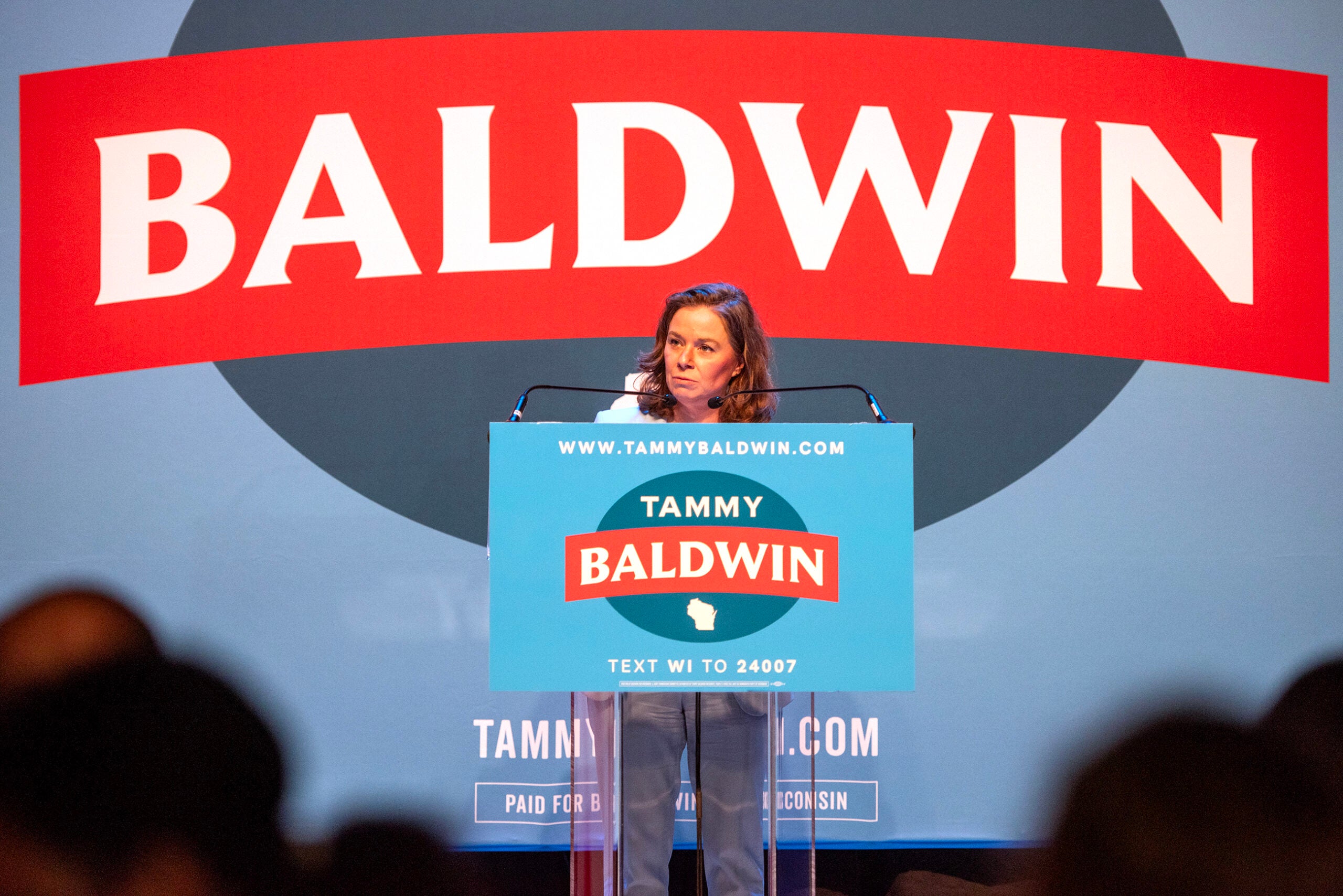After nearly a week of silence, Republican Eric Hovde said Tuesday that he lost his race to Democratic U.S. Sen. Tammy Baldwin, moments after releasing a video where he called into question the results of their November election.
According to unofficial results complied by The Associated Press, Baldwin had received 1,672,418 votes compared to 1,643,302 for Hovde. That gave her a winning margin of 29,116 votes, or about 0.9 percent.
Stay informed on the latest news
Sign up for WPR’s email newsletter.
The AP called the race for Baldwin on Nov. 6, the day after the election, at 12:42 p.m., but a week later, Hovde hasn’t conceded.
In a video posted to the social media site X Tuesday afternoon, Hovde claimed he was “shocked by what unfolded on election night” when votes were still being counted in Milwaukee County. He said at 1:00 a.m. the morning after, he was receiving congratulatory calls and claimed that “based on the models” it looked like he would defeat the two-term Democrat. Milwaukee’s results, he said, left him “deeply concerned.”
But shortly after he released his video, Hovde admitted in an interview on WISN-AM that he had lost the election.
“It’s the most painful loss that I’ve ever experienced,” he said in the interview.
In a social media post responding to Hovde’s comments Tuesday, Baldwin accused Hovde of “spreading lies from the darkest corners of the internet to undercut our free and fair elections.”
“Wisconsin voters made their voices heard,” Baldwin said. “It’s time for Hovde to stop this disgusting attack on our democracy and concede.”

The Democratic Party of Wisconsin, which widely shared Hovde’s radio interview shortly after it was broadcast, released a statement saying the voters had rejected his candidacy.
“And now he’s admitted he lost,” said Democratic Party of Wisconsin Rapid Director Arik Wolk. “It’s time for him to end his pathetic charade.”
Hovde’s questionable claims focused on Milwaukee
In a statement responding to Hovde’s video, the Milwaukee Election Commission called the claims “baseless” and said all aspects of the election were conducted with transparency “and in strict adherence to established laws and procedures.”
“It is both expected and routine that absentee ballots—over 100,000 in this case—are counted and reported in the late hours of Election Night due to Wisconsin’s high voter turnout and the rigorous verification standards the MEC upholds,” the statement said.
Other states permit absentee ballots to be processed ahead of Election Day, the commission noted. Wisconsin does not, which often results in large numbers of absentee ballots being reported late at night.

Some of Hovde’s claims Tuesday got the numbers wrong.
For example, Hovde suggested that when the final batches of absentee ballots from Milwaukee were reported at around 4:00 a.m., Baldwin received “nearly 90 percent of those ballots.”
“Statistically, this outcome seems improbable, as it didn’t match the patterns from same day voting in Milwaukee,” Hovde claimed.
Actual totals from the city of Milwaukee showed Baldwin received about 82 percent of absentee ballots in Milwaukee, which was close to her 78 percent winning margin. Absentee ballots favoring Democratic candidates are the norm in American politics, where the party has long encouraged its supporters to vote early.
Hovde’s video also claimed he would have won the Senate race if not for third-party candidates, Thomas Leager and Phil Anderson.
“Democrats organized and funded a phony America first candidate, Thomas Leager, on the ballot to deceive voters that this candidate was aligned with President Trump, in order to siphon votes from me,” Hovde said. “Because of this deception, Leager received 28,724 votes.”
Leager’s total, however, was less than Baldwin’s 29,116 vote margin of victory. Anderson, who received 42,344 votes, has run several times for Wisconsin offices.
Hovde had previously promised to accept the results of the election
Before Hovde’s comments Tuesday, his last public statement came early the morning after the election in a post to the social media site X. Hundreds of people replied to Hovde’s post with unfounded claims of Democratic cheating, calls for investigations into Milwaukee’s election results and claims that Wisconsin’s U.S. Senate election was stolen.
The suggestions came despite former President Donald Trump winning Wisconsin, Republicans winning six of Wisconsin’s eight congressional elections and legislative candidates maintaining majorities in the state Assembly and Senate.
A spokesperson for Hovde’s campaign has not responded to WPR text messages and calls asking whether he would seek a recount or concede the race.
In an interview with WISN-TV in May, Hovde said he would accept the results of the November election.
“Yes, I will,” he said at the time. “I think everybody should.”

Because Baldwin’s projected margin of victory over Hovde is within 1 percent, Hovde could request a recount after counties have finished canvassing their election results, but his campaign would have to pay the costs associated with recounting millions of votes around the state.
The county canvass must be completed no later than Nov. 19. Hovde would then have three business days to decide whether to request a recount.
Speaking before Hovde’s comments Tuesday, Republican strategist Bill McCoshen told WPR that people on the right “are trying to create a conspiracy related to the results of the U.S. Senate race where there isn’t one.”
While Baldwin received around 4,500 more votes than Vice President Kamala Harris, Hovde received about 54,000 fewer votes than Trump.
“That’s not uncommon in any statewide race during a presidential year,” McCoshen said of Hovde underperforming Trump. “There’s ballot drop off where people vote for president and then do not vote for U.S. Senate.”
2 years ago, Republicans called for quick concession in Wisconsin Senate race
A Tuesday social media post by Democratic Party of Wisconsin Spokesperson Joe Oslund criticized the state Republican Party and other conservatives for “squawking” about former Democratic Lt. Gov. Mandela Barnes waiting less than a day to concede his 2022 U.S. Senate loss.

“Eric Hovde has taken a week, and the clock is still ticking,” Oslund said. “Meanwhile, crickets from all these clowns.”
Johnson had a similar margin of victory of around 27,000 votes two years ago, and like this year’s Senate election, the race wasn’t called until the following morning. Johnson declared victory anyway and accused “the corporate media” of “refusing to call a race that is over.” Barnes held a press conference and conceded hours later.
This time, McCoshen said he doesn’t “see a viable path, mathematically,” for Hovde to win.
“My guess is he waits to see what the canvass is today or tomorrow,” McCoshen said. “And if it doesn’t change anything, then he’ll concede.”
Editor’s note: This story was updated to reflect that The AP called the race for Baldwin on Nov. 6. WPR’s Shawn Johnson contributed to this report.
Wisconsin Public Radio, © Copyright 2025, Board of Regents of the University of Wisconsin System and Wisconsin Educational Communications Board.





